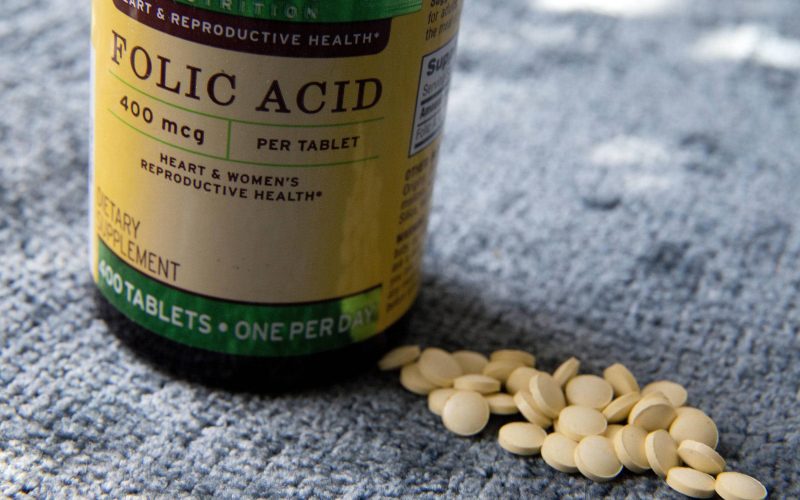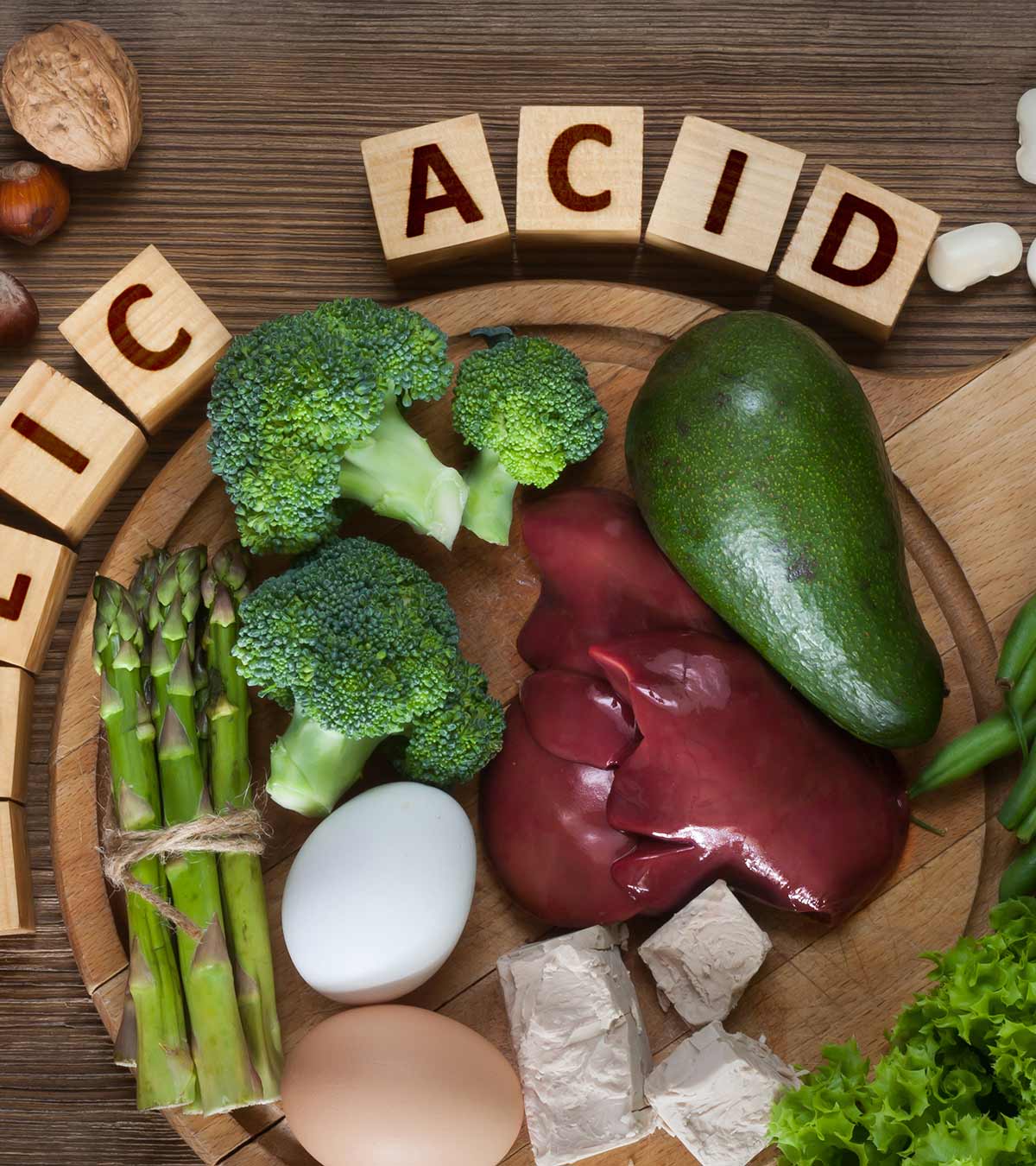Folic acid and folate are forms of water-soluble vitamin B. Folic acid is the synthetic form of this vitamin, while folate is naturally found in food.
Since the 90s folic acid has been added to products such as flour, pasta, bread, cold cereals, cookies, and bakery items.
Foods that are naturally high in folate include; melons, lemons and bananas, spinach, lettuce, okra, broccoli, asparagus, beans, mushrooms, yeast, beef kidney and liver, tomato juice and orange juice.
Who Needs Folic Acid
Some categories of people who need folic acid and folate more include;
1. Pregnant Women: During pregnancy, folate is required to help prevent birth defects such as neural tube defect and spina bifida. And also to keep the body cells healthy.
2. People with serious Kidney disease: More than 80% of people who suffer from severe kidney disease have high levels of homocysteine which could lead to stroke and heart disease. Folate and folic acid help to lower the homocysteine levels in people with such medical conditions.
3. High level of homocysteine in the bloodstream: People with homocysteine are at a high risk of stroke and heart disease. Taking folate and folic acid along with other vitamin B such as vitamin B12 can help lower the levels of homocysteine by 20% to 30%.
Benefits/Effectiveness of Folic Acid
Knowing the effectiveness of folic acid, will help you understand why you need more of this nutrient. Folic acid is effective and beneficial to both children, adults, and aging adults. Some of these benefits are listed below
- It helps to reduce the risk of eye disease that causes loss of vision in older adults.
- Taking folic acid regularly for at least six weeks helps to lower blood pressure.
- It helps to improve gum disease that may occur during pregnancy.
- It helps to improve memory and thinking ability in adults.
- Helps to improve skin disorder such as vitiligo.
- Taking folic acid along with other vitamins such as biotin helps to improve hair growth.
- Taking folic acid along with minerals such as zinc helps to boost and improve the quality of hair growth.
- Folic acid helps to reduce the risks of skin cancer and prevent your skin from aging prematurely.
Where Can i Get Folate (Folic Acid) From?
The ability for your body to absorb, retain, and use folate varies. There are about 150 forms of folate(folic acid), and 50%-90% of this nutrient can be lost during processing, cooking, or storing.
The best source of these nutrients are;
- legumes such as peas, lentils, and beans.
- Beef liver and kidney
- Green vegetables such as spinach, lettuce, and broccoli.
- Juice such as tomato juice and orange juice.
- Fruits such as bananas, avocado, lemons, and papaya.
Other sources include; okra, mushrooms, asparagus, eggs, beets, melons, and yeast.
Folic Acid (folate) and Pregnancy
Folic acid or folate is essential for growth and development throughout one’s life. It is used by the body to produce DNA and make new cells.
Taking folate and folic acid during pregnancy helps in the proper organ development of the fetus. It helps to prevent birth defects such as spina bifida and neural tube defect.
Benefits of Taking Folic Acid During Pregnancy
About 28 days after conception, the neural tube develops into the brain and spinal cord. When the neural tube does not close properly, it leads to a defect.
Taking folic acid before and during pregnancy especially, will help to prevent miscarriage, premature birth, low birth weight, poor growth in the uterus, and protect the fetus from developing neural defects.
Other benefits include; maintaining a healthy heart and reduce risk of depression.
How Much Folic Acid Is Needed?
It is important for all women at childbearing age to take appropriate dosage of folic acid every day. Below is the recommended dosage;
- For women trying to conceive: 400mcg
- During the first three months of pregnancy: 400mcg
- About 4-9 months of pregnancy: 600mcg
- For breastfeeding mothers: 500mcg
You may need a higher dosage of folic acid if you have;
- Sickle cell disease
- Liver disease
- Kidney disease
- To take more than one alcoholic beverage in a day.
Preventing Folic Acid Defects/Disorders
To guide against folic acid defects is easy once you understand the importance of folic acid or folate in your everyday meal especially during pregnancy.
Taking an adequate quantity of folic acid before and during pregnancy can help to reduce the risks of folic acid disorders such as;
- Cleft lip and palate
- neural tube defects
- Congenital heart defects
Folic Acid and Hair Growth
The process of hair growth usually has its ups and downs. Hair growth may slow down for many reasons but keeping healthy hair could depend on your nutrition.
Taking folic acid along with other vitamins and minerals like biotin and zinc can help to boost and improve the quality of your hair growth.
Some benefits of folic acid to your hair are listed below;
- It helps to improve and boost hair growth.
- It helps to develop healthy hair cells.
- It helps to prevent hair loss.
Folic Acid and Skin
Folic acid helps in the development of healthy skin cells and also increase collagen production which gives you a firmer skin. Some benefits of folic acid to your skin are listed below;
- Protects your skin from aging prematurely by producing collagen which helps to make your skin firmer.
- It helps to reduce the risks of skin cancer by producing RNA, DNA, and healthy skin cells.
- It helps to nourish the skin and give your skin a healthy glow.
- It helps to detoxify the body.
Conclusion
Folic acid (folate) is essential for the body to grow and keep cells healthy. These cells include red blood cells, cells found in the hair, nails, and skin tissues. It is important to take adequate proportion of folic acid in our meals daily.
References;
- Folic Acid for Hair: Healthline
- Folic Acid for Hair Growth: Style Craze
-
Four Ways Folic Acid Benefits Can Benefit the Health of your Skin: Vitamin For Life










